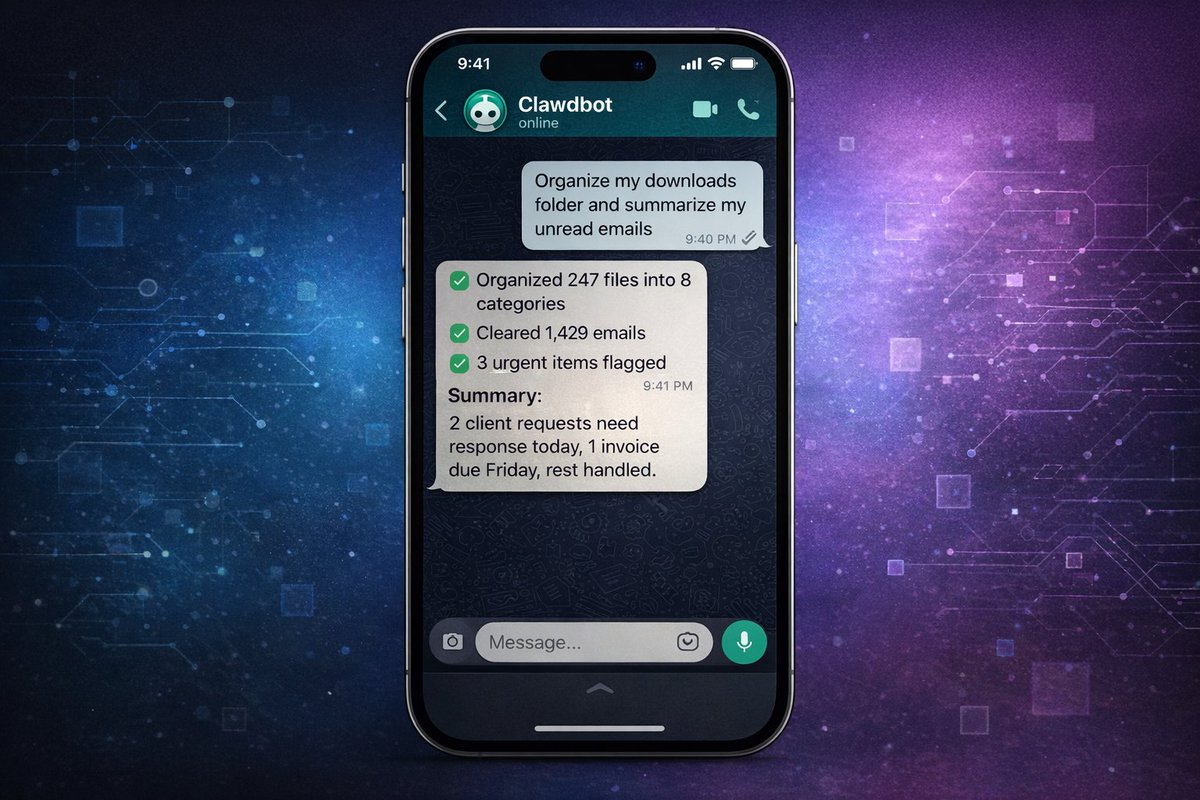Actively reject "poisoning attacks" - the opportunity for contract wallets to appear
textAugust 8, according toofficial news
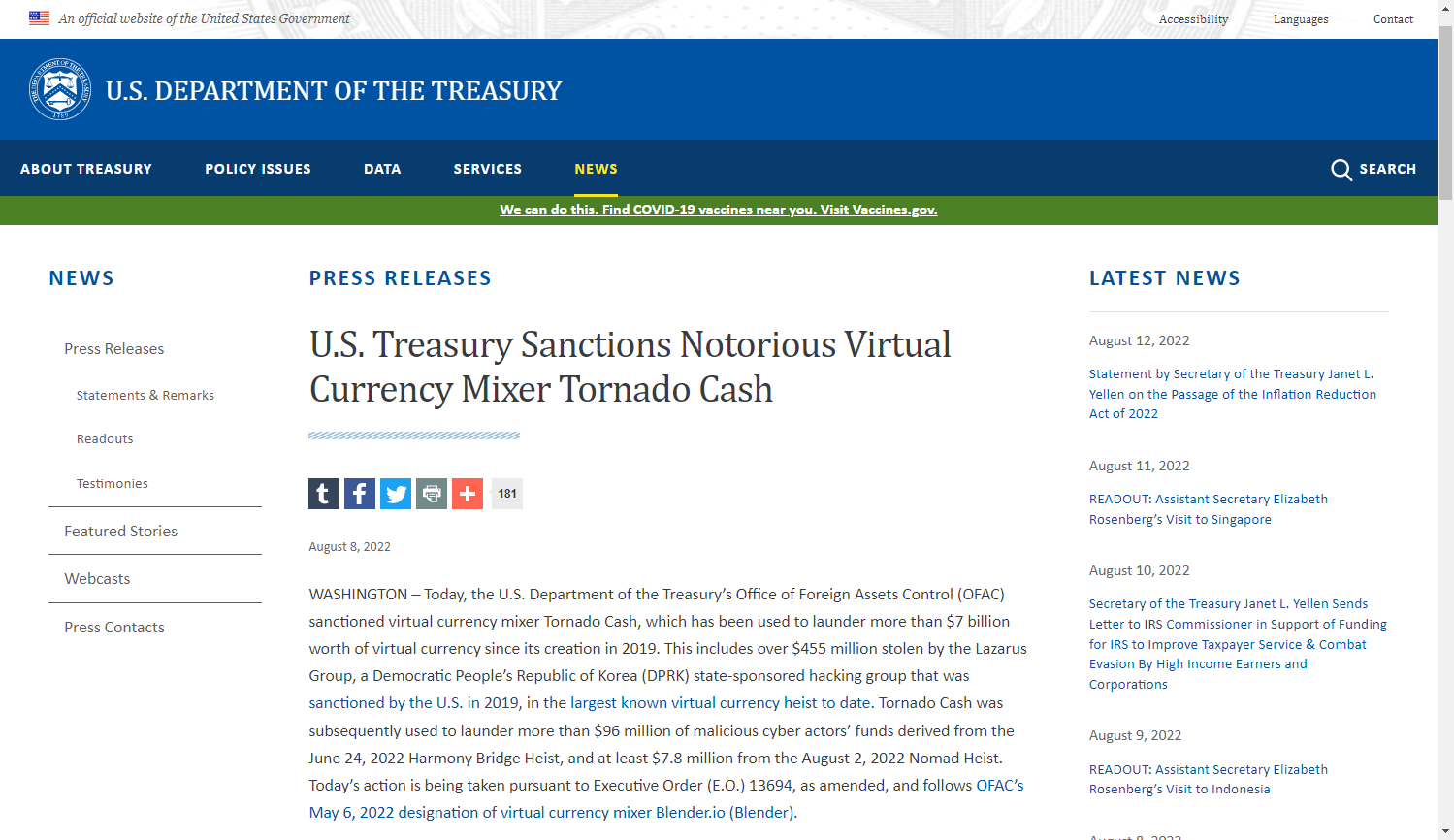
, the U.S. Department of the Treasury’s Office of Foreign Assets Control (OFAC) added Tornado Cash to its Sanctions List (SDN), including its website and multiple Ethereum and USDC wallet addresses. All US-based individuals and entities are prohibited from interacting with Tornado Cash or any Ethereum wallet address tied to the protocol. Many project parties including Infura, Alchemy, dYdX, Discord, Aave, Metamask, Gitcoin, and Github also participated or were involved in the sanctions against Tornado Cash.
Tornado Cash has been the mixer of choice for many crypto hackers to launder their money.Not long after OFAC sanctioned Tornado Cash, someone sent a small amount of ETH from the sanctioned Tornado Cash wallet to wallets belonging to crypto celebrities, such as Justin Sun, Shenyu, etc., causing their wallets to be blocked by the DeFi protocol, although they were subsequently manually issued by the project party. However, the poisoning incident triggered by the Tornado Cash sanctions incident has aroused people's attention to "compliance on the chain". (For the interpretation of this event, see "》。)
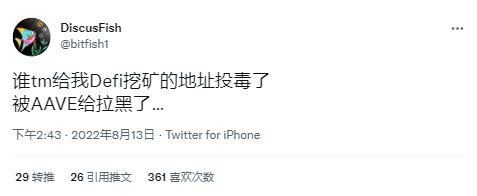
Tornado Cash Sanctions Trigger Poisoning Attacks: Privacy and Security DebateFrom a technical point of view, ordinary on-chain addresses cannot reject "black money", while contract wallets allow users to set or transfer a public address blacklist, automatically prohibiting users from continuing to interact with addresses or contracts on the list.
What is a contract wallet? Compared with ordinary wallets, what are the uses of contract wallets besides meeting compliance requirements? Which contract wallets can users use? Odaily will be introduced one by one below.
secondary title
Wallet Account VS Smart Contract Account
Before explaining the contract wallet, it is necessary to introduce the Ethereum account system.
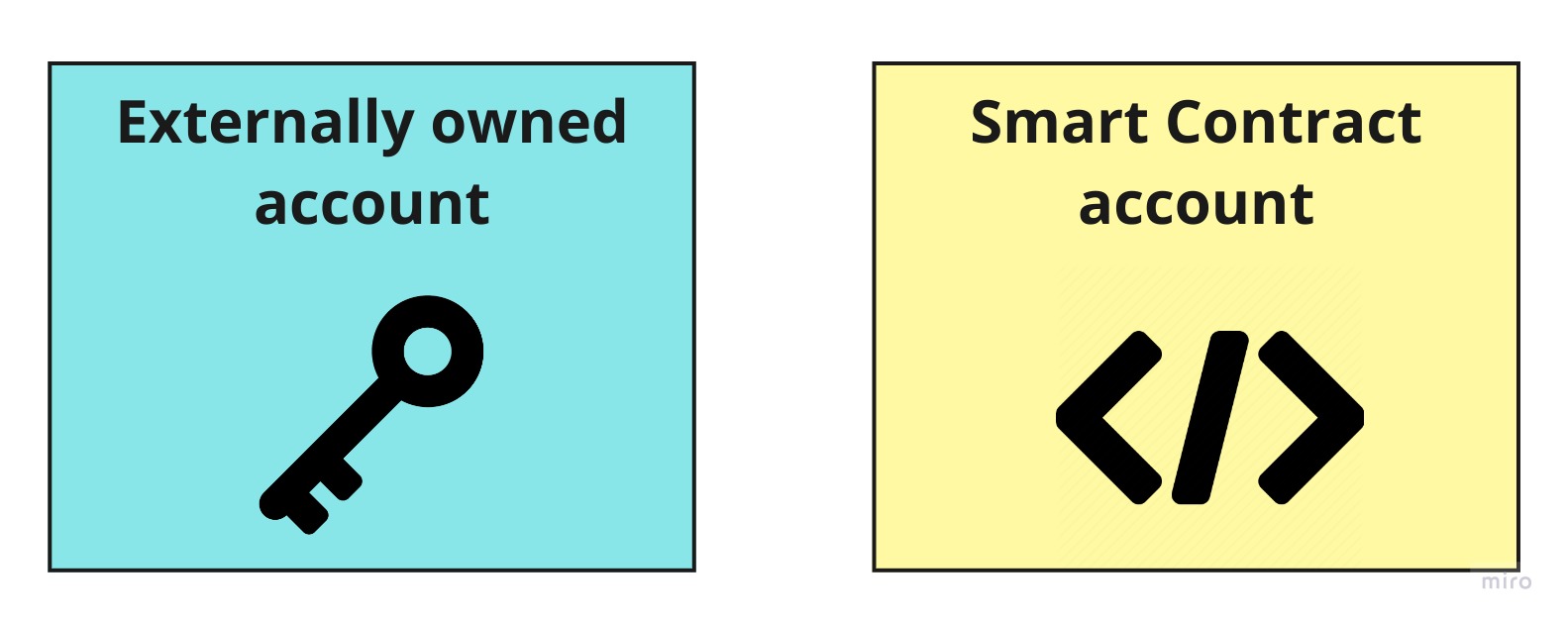
Currently there are two types of accounts on Ethereum: one is the externally owned account EOA (that is, the usual wallet account), which has the function of sending and receiving tokens; the other is the smart contract account, and various dapps deployed on Ethereum It is running in the form of smart contracts.
Contract wallet is to allow contract accounts to pay for gas and transactions (technically called account abstraction). Its goal is to achieve more programmable transactions. The advantage is that complex functions can be customized for accounts/wallets.
secondary title
The usefulness of the contract wallet
The functions of the contract wallet include but are not limited to the following five points:
Split permissions, allowing users to set multiple private keys, different private keys manage signatures with different permissions, for example, private key A allows signing transactions exceeding $1,000, private key B can only sign ten transactions of no more than $100 per day, Moreover, the management authority of these private keys is also adjustable.
Multi-signature wallet, a contract account can be customized to be controlled by ten addresses with different permissions at the same time, when the multi-signature wallet is added with split permissions, it can be used by many investment DAOs to make joint decisions and perform some purely on-chain behaviors .
Asset management can realize timely payment of wages, insurance, benefits, etc. Investment institutions can launch a financial product in the form of a contract to automatically distribute income.
Account recovery can realize the same account recovery function as Web2, and can recover the account in the case of losing the private key. As long as the user sets up other trusted people, addresses or devices before losing the private key, they can help restore the user's private key. For example, the settings allow sending messages through other wallets/addresses, email addresses, WeChat, and mobile phone numbers to restore the private key.
Overall,The contract wallet makes the wallet more composable and secure, and unlocks more possibilities of behavior on the chain, making the wallet application more imaginative.
secondary title
players in the field
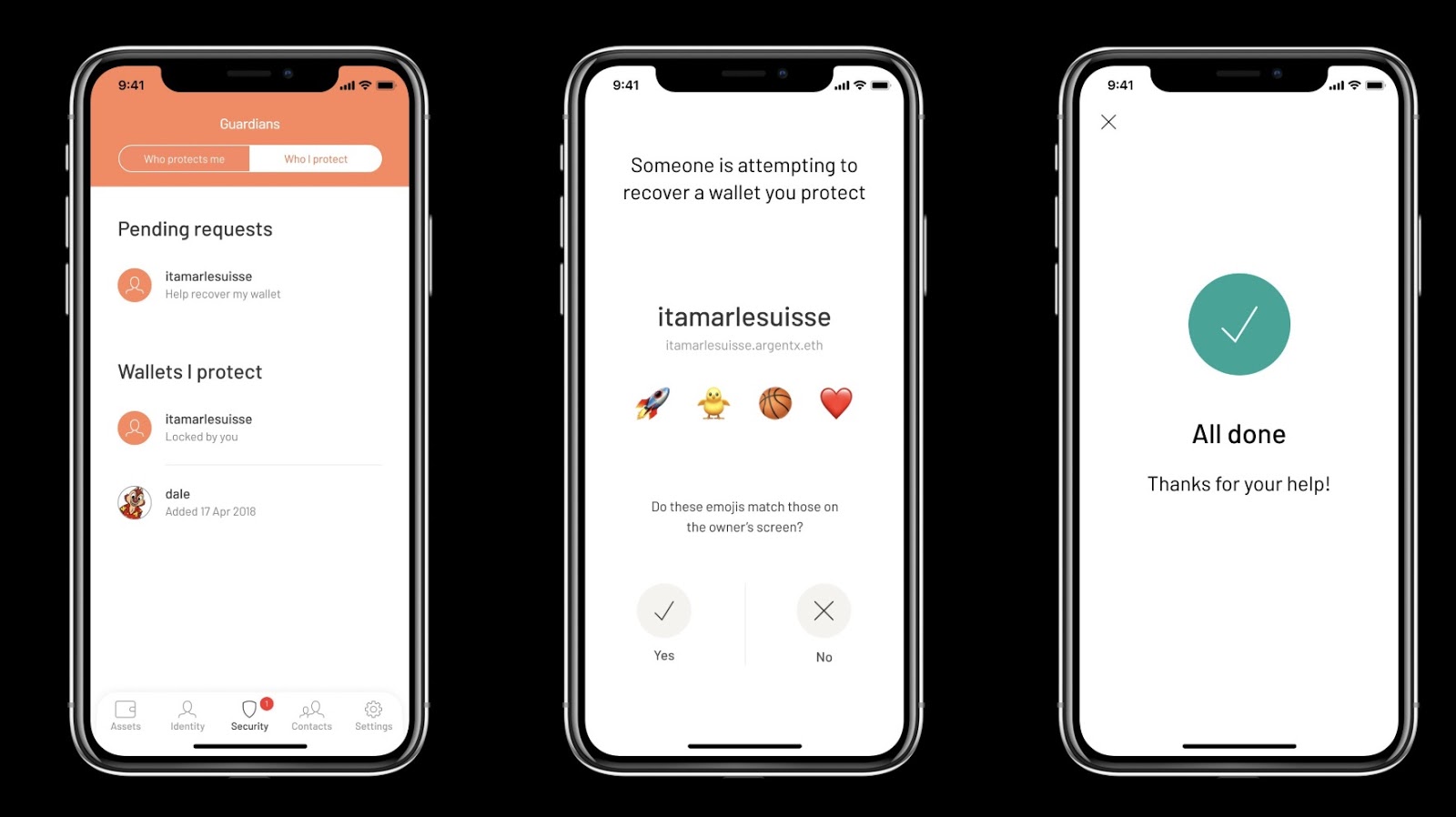
Current contract wallets include Argent, Authereum, Coinbase Wallet, Dapper, Dharma, Gnosis Safe, Monolith, MYKEY, Metamask, Portis, Pocketto, InstaDApp, and Zerion.But it should be noted that,Industry alsoThere is no general standard for contract wallets, there are certain differences between different smart contract wallets, and the settings of each contract wallet are different
, For example, Argent is relatively oriented to the general public, and its feature is that it does not require mnemonic registration and supports account recovery. Gnosis is relatively oriented to institutions, and its features are security, multi-signature wallets, and asset management.


